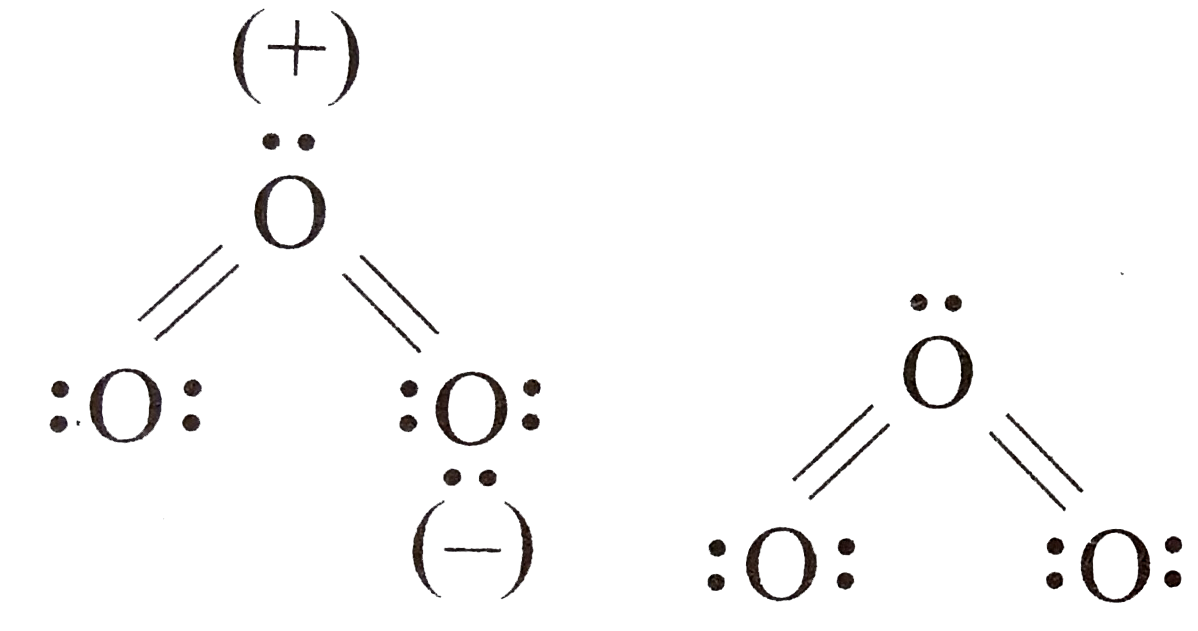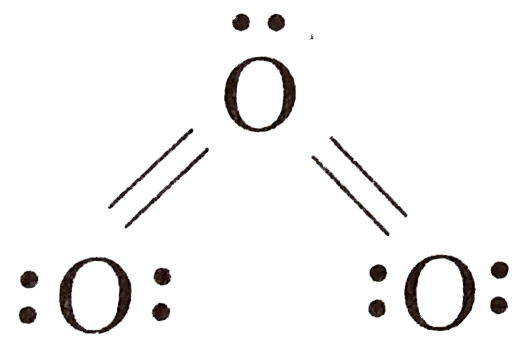Complete Solutions to Reason Assertion of chapter CHEMICAL BONDING AND MOLECULAR STRUCTURE of Class 12 book with complete answers and questions
| Class 12 | CHEMISTRY |
| Chapter | CHEMICAL BONDING AND MOLECULAR STRUCTURE |
| DINESH OBJECTIVE CHEMISTRY | Reason Assertion |
| Number Of Questions | 37 |
| Academic Year | 2023-24 |
Assertion(A) - In case the central atom in a molecule is surrounded only by shared pairs of electrons, the molecule has a regular geometry.
Reason(R) -The shared pair of electrons repel each other with equal force so all bonds are equidistant from each other.
View SolutionAssertion(A) - The bond order in a molecule can have any value, positive or negative, integral or fractional or zero.
Reason(R) - The bond order of a molecule depends upon the number of electrons in the bonding and antibonding molecular orbitals.
View SolutionAssertion(A) - Water is speClally effective in screening the electrostatic interactions between the dissolved ions.
Reason(R)-The force of ionic interactions depends upon the dielectric constant `(in)` of the solvent.
View SolutionAssertion(A) - When two uncharged similar atoms are brought very close together, their surrounding electron clouds influence each other, and a force of attraction is always built up between them.
Reason(R)-The random variation in the positions of electrons around one nucleus may create a transient electric dipole, which induces a transient opposite electric dipole in the nearby atoms.
View SolutionAssertion(A) - The nearly tetrahedral arrangement of the orbitals about the oxygen atom allows each water molecule to form hydrogen bonds with as many as four neighbouring water molecules.
Reason(R)-In ice each water molecule forms four hydrogen bonds as each molecule is fixed in the space.
View SolutionAssertion(A) - There are ten valence electrons on the sulphur atom in `SF_4` molecule.
Reason(R)-The structure of `SF_4` molecule is based on a distorted trigonal bipyramid.
View SolutionAssertion(A) - Fluorine molecule has bond order one.
Reason(R)-The number of electrons in antibonding molecular orbital is two less than that of bonding molecular orbitals.
View SolutionAssertion(A) - The geometry of formaldehyde molecule is trigonal planar.
Reason(R) -In `H_2CO` molecule, the carbon atom is surrounded by 3 sigma bonding electron pairs.
View SolutionAssertion(A) - Silicon tetrafluoride. `SiF_4` is non polar even though fluorine is much more electronegative than silicon.
Reason(R)-The four bond dipoles cancel one another in `SiF_4`.
View SolutionAssertion(A) - `H_2` molecule is more stable than He molecule.
Reason(R)-The occupation of antibonding orbitals stabilises the molecules.
View SolutionAssertion : The atoms in a covalent molecule are said to share electrons, yet some covalent molecule are polar.
Reason :In a polar covalent molecule , the shared electron spend more time on the average near one of the atoms .
View SolutionAssertion : Water is a good solvent for ionic compounds but poor one for covalent compounds.
Reason :Hydrogen energy of ions realeases sufficient energy to overcome lattice energy and break hydrogen bonds in water, white covalent bonded compound interact so weakly that even van der walls force between molecule of convalent compounds cannot be broken .
View SolutionAssertion (A): Lithium chloride is predominantly covalent compound.
Reason (R ): electronegativity difference between Li and CI is small.
View SolutionAssertion(A) - `BF_3` molecule is planar but `NF_3` is pyramidal
Reason( R )-N atom is smaller than B
View SolutionAssertion(A) - `FeCl_3` undergoes sublimation at a lower temperature.
Reason( R )-`Fe^(3+)` has low polarising power and hence `FeCl_3` has high covalent character.
View SolutionAssertion(A) - The bond order of NO molecule is 2.5.
Reason( R )-NO molecule is paramagnetic in nature.
View SolutionAssertion(A) - `CO_3^(2-)` ion is relatively more stable than `H_2CO_3`.
Reason( R )-The negative charge of carbonate ion is delocalised on all the three oxygen atoms.
View SolutionAssertion(A) - Magnetic moment of super oxide ion is much larger than that of peroxide ion.
Reason( R )-Peroxide ion has no unpaired electrons but superoxide ion has unpaired electrons.
View SolutionAssertion(A) - OF molecule is theoretically more stable than `F_2`
Reason(R) : Bond order in OF molecule is higher than in `F_2` molecule
View SolutionAssertion(A) - In `N_2` molecule, the N atoms are bonded by one sigma and two `pi`-bonds.
Reason(R) :N atoms assume `sp^2` hybrid state to constitute `N_2` molecule.
View SolutionAssertion(A) - In calcium carbide, the two carbon atoms are held by sigma bond as well as ionic bond
Reason(R ) : calcium carbide can be considered to be an acetylene salt.
View SolutionAssertion(A) - KCl is a heteroatomic as well as diatomic molecule
Reason(R ) : Aqueous solution of KCl conducts electricity and at the same time it undergoes decomposition.
View SolutionAssetion Both `N_(2)` and `NO^(o+)` are diamagnetic
Reasoning `NO^(o+)` is isoelectronic with `N_(2)` .
View SolutionAssertion(A) - The bond angle around `PBr_3` is larger than that in `PH_3` but bond angle of NB `r_3` is less than that of `NH_3`
Reason(R ) : Atomic size of Br is smaller than that P atom because of larger nuclear charge
View SolutionAssertion(A) - `NO_3^-` ion has same geometry as `NH_3`.
Reason(R ) : The hybrid states of N in `NO_3^-` ion and `NH_3 sp^2` and `sp^3` respectively
View SolutionAssertion(A) - `PCl_5` exists but `BiCl_5` does not.
Reason(R ) : Bi does not contain d orbitals to expand its octet.
View SolutionAssertion(A) - `SF_4 and B F_4^(-)` have similar geometries.
Reason(R ) : Hybrid states assumed by S in `SF_4` and B in `BF_4^-` are different.
View SolutionAsseration: The elctronic structure of `O_(3)` is:

Reason: structure is not allowed because octet around `O` cannot be expanded

View SolutionAssertion : `sigma`-bond is strong white `pi` -bond is a weak bond.
Reason :Atomic rotate freely about `pi`-bond.
View SolutionAssertion : All F - S - F angle in `SF_(4)` are greater than `90^(@)` but less than `180^(@)`.
Reason :The lone pair -bond pair repulsion is weaker than bond pair -bond pair repulsion
View SolutionAssertion(A) - `H_2` molecule is stabler than HCH molecule.
Reason(R ) :The antibonding electron in the molecules stabilises it.
View SolutionAssertion Bond order in a molecule can assume any value positive integral or fractional value including zero
Reasoning It depends on number of electrons in the bonding and antibonding orbitals .
View SolutionAssertion : The atoms in a covalent molecule are said to share electrons, yet some covalent molecule are polar.
Reason :In a polar covalent molecule , the shared electron spend more time on the average near one of the atoms .
View SolutionAssertion:- `NO_(3)^(-)` is planar while `NH_(3)` is pyramidal
Reason:- N in `NO_(3)^(-)` is `sp^(2)` and in `NH_(3)` it is `sp^(3)` hybridised with one ione pair.
View SolutionAsseration: `SeCl_(4)`, does not havea tetrahedral structure.
Reason: `Se` in `SeCl_(4)` has two lone pairs.
View SolutionAssertion `B_(2)` molecule is diamagnetic
Reasoning The highest occupied molecular orbital is of sigma type .
View Solution(A) Molecular nitrogen is less reactive than molecular oxygen.
(R) The bond length of `N_(2)` is shorter than that of oxygen.
View Solution
Reason Assertion questions and complete solutions for chapter CHEMICAL BONDING AND MOLECULAR STRUCTURE of S DINESH & CO CHEMISTRY (HINGLISH) of Class 12